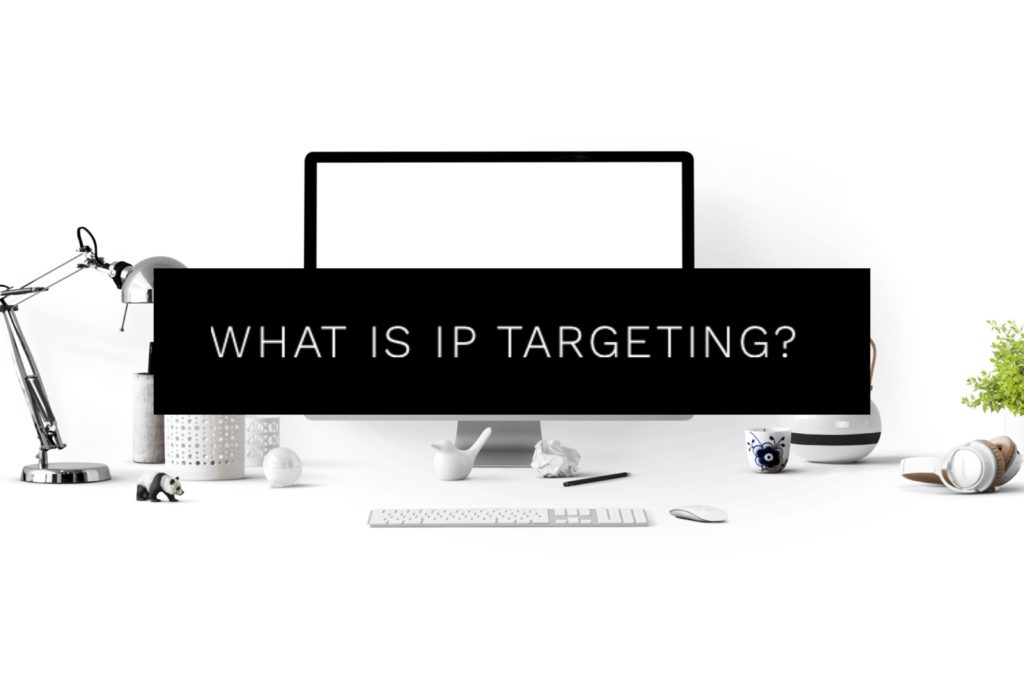What is IP targeting?

Location has been a significant factor when it comes to businesses selling goods or advertising services. The adage, “Location, location, location,” does not carry as much worth as it did for previous generations anymore. The introduction of the Internet, and in particular, IP targeting, has revolutionized the way businesses advertise what they have to offer. Digital marketing, as a whole, has been making changes in the way people connect with brands.
In the real-world, distance determines who you can advertise to. In the digital, all boundaries are removable. However, if you are a business focusing on driving traffic to a physical location, such as a brick and mortar store, then IP targeting is worth introducing to your next campaign.
Delivering personalized messages to specific targets has been a challenge in the past due to Internet privacy. Fortunately for marketers, consumers have become open to the idea of allowing businesses into their homes and mobile devices. Partly in favor of the granular level of targeting new technologies offer advertisers. It’s a win for both parties considering only relevant ads reach consumers and businesses do not waste ad spending on low converting potential customers.
What is IP targeting?
IP targeting is a marketing technique useful for sending personalized content to a website visitor’s mobile or desktop device based on its physical location. Internet Protocol (IP) addresses determine a user’s physical location.
Every device that connects to the Internet has an IP address that refers to its location, whether a home or a place of business. Without delving too deep into the technical aspects of how the Internet works, understand that each device must connect to a router to access the Internet. Imagine an apartment complex that has one mailbox, but within that mailbox exist multiple smaller mailboxes. The same concept applies to your home, business, or any location that offers the Internet.
Examples of IP targeting advertising
Trade shows are perfect examples of using IP targeting advertising. Event centers typically offer the Internet, and for marketers, this tells precisely where their audience will be. As users connect to the event center’s Internet router, marketers can target these users and send relevant ads within the context of the trade show.
Household IP targeting is achievable in the same manner. As new businesses open up their physical stores, setting zip codes as the target allows for the neighborhoods to be aware of grand openings or sales.
IP targeting ethics
Internet privacy is still a significant concern among Americans. Interests of privacy coincide with how businesses mine their data. It’s common knowledge that “free” applications are not necessarily free. The trade-off of these free platforms includes data. How a business collects data is up for debate on whether it is ethical. Currently, IP targeting is in a gray area of ethical practices. As long as consumers continue to integrate the Internet and their devices more into their life, IP targeting will continue to be a viable resource for marketers.
The line between wanting privacy and understanding advertisements are a part of life is beginning to blur. On the upper hand, businesses can serve relevant ads, which is less of an annoyance if you are a consumer.
Final thoughts on IP targeting
As with all techniques, it’s best to understand the why before the how. IP targeting is just one of many different techniques marketers have at their disposal. The question is whether it is ethical to use the information collected to target an audience. As long you are relevant in your campaign to your target audience, then the answer, for the time being, is as simple as yes.